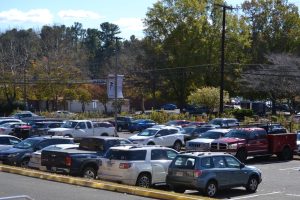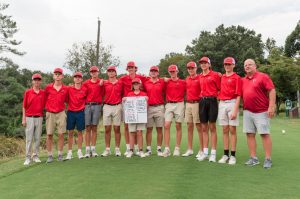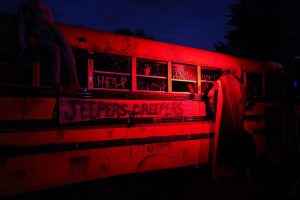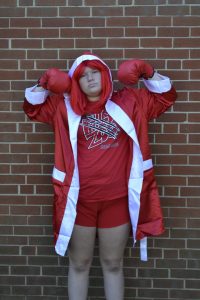Young Life provides safe space for adventure
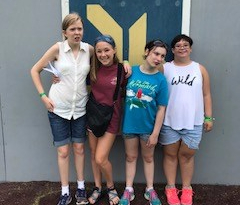
September 22, 2017
For the past three summers, junior Emma Gorg has been a camp counselor at Capernaum, one of many Young Life camps. Young Life is a Christian group focused on improving the lives of teenagers by spreading their message of faith. Capernaum is focused on students with intellectual and physical disabilities, where they can participate in activities ranging from horseback riding to zip-lining to swimming. The camp lasted for five days and took place in Rockbridge County. Gorg had two buddies for the week, one of them a student at FHS.
“I’ve always had a special place in my heart for special-needs kids, and I have been to many Young Life camps myself so I wanted to give [them] an opportunity to do what I’ve always loved to do [at] these camp,” Gorg said.
This summer was junior Aleeya Hodul’s first time attending Camp Capernaum. Being that her little brother has Down syndrome, Hodul said she wanted to be a part of the impact that Young Life makes on these teenagers lives.
“It was a lot of fun, and I definitely learned a lot about the campers and how much like us they actually are,” Hodul said.
The camp’s main priority is to give these campers the ultimate summer experience, one where their disabilities don’t overshadow their abilities to have fun and be adventurous, while also tying these activities in with daily messages of God.
“[The camp is centered around] having fun and making sure they’re OK, helping them grow spiritually and hear the message that they had each week,” Gorg said. “Another part was encouraging them to get out of their shell. You don’t necessarily want to get them out of their comfort zone, because then they’ll get scared, but allowing themselves [to realize] they are capable of doing all the same stuff.”
One of the camp’s main objectives is to incorporate sermons in a way that the campers can comprehend. The campers learn about the basic story of Christ, his death for the people’s sins, his resurrection and how he loves each of them personally.
“We related how Jesus forgives us for our sins to [them being able to] forgive their friends, by a hug,” Gorg said. “We say, ‘You can trust that you’re not going to fall, just like you can trust Jesus to be there for you.’ Most of the time, I tried to incorporate the [message] into each activity.”
Before becoming a camp counselor, students must go through basic training and fill out a questionnaire. Through this, they learn how to care for the campers properly and how to respond to over stimulation.
“You learn wheelchair etiquette, to not kneel down and not touch someone else’s wheelchair,” Gorg said. “[I was also taught] how to help someone when they get uncomfortable and overstimulated. We always have a set of earplugs on us; or if they just need a quiet moment, we’re taught to pull them out and talk to them.”
Because each camper had a different challenge, Hodul was able to learn how to care for each camper depending on the individual needs.
“You had to see the differences [in each diagnosis] and adjust to how you would approach situations,” Hodul said. “You just have to comforting and encourage them and be there for them, more than anything.”
Gorg said personality and attitude were key factors in making the campers comfortable and engaged. She found that she had to overcome her shy demeanor in order to do the best for them.
“Originally, I was always quiet and never was outgoing, but I’ve learned to be more outgoing. If you’re outgoing, then they will be, too, because they see [that example],” Gorg said.
Hodul said being a part of this camp made her more aware of students with special needs, and she has begun to befriend them more than she would prior to the camp.
“There was a lot of positivity and everyone there was so helpful; if you looked like you needed help, everyone was there to help you out and help the campers,” Hodul said. “[People need to learn that the campers] are different, but they’re more like us than you realize.”

